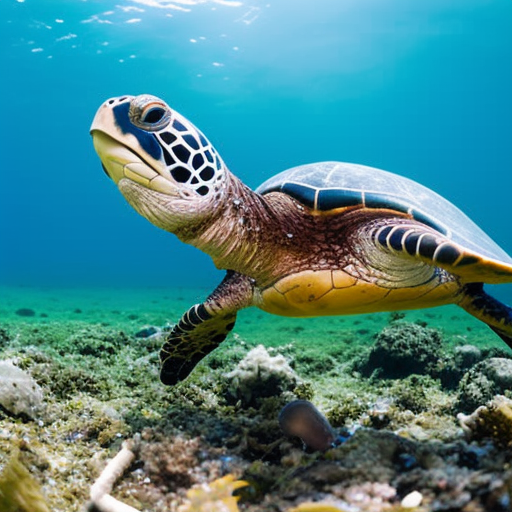Summary: Marine pollution refers to the contamination of the ocean and its ecosystems by various pollutants. It is caused by human activities such as industrial waste, oil spills, sewage discharge, and plastic pollution. Marine pollution has devastating effects on marine life, including the destruction of habitats, the endangerment of species, and the disruption of the food chain. Efforts are being made to mitigate marine pollution through regulations, clean-up initiatives, and the promotion of sustainable practices.
Sources and Types of Marine Pollution
Marine pollution can originate from various sources, including land-based activities, offshore activities, and atmospheric deposition. Land-based sources include sewage discharge, agricultural runoff, and industrial waste. Offshore activities such as oil drilling and shipping also contribute to marine pollution through oil spills and accidental discharge of pollutants. Atmospheric deposition occurs when pollutants from the air, such as heavy metals and toxic chemicals, settle into the ocean.
The types of pollutants that contaminate the marine environment are diverse. They include oil, heavy metals, plastics, chemicals, and nutrients. Oil spills, either from tanker accidents or offshore drilling, have devastating effects on marine ecosystems. Heavy metals, such as mercury and lead, can accumulate in the tissues of marine organisms, leading to health problems and even death. Plastics are a major concern, with millions of tons ending up in the ocean each year. They pose a significant threat to marine life, as animals can become entangled in plastic debris or mistake it for food.
Impact on Marine Life
Marine pollution has severe consequences for marine life. It destroys habitats such as coral reefs, seagrass beds, and mangroves, which are crucial for the survival of many species. Pollution can also lead to the eutrophication of coastal waters, where excessive nutrients cause algal blooms that deplete oxygen levels, leading to dead zones where marine life cannot survive.
Pollutants can directly harm marine organisms, causing physiological and reproductive problems. For example, oil spills coat the feathers and fur of marine birds and mammals, impairing their ability to fly or stay warm. Chemical pollutants can disrupt the endocrine system of marine animals, affecting their growth, reproduction, and behavior.
Furthermore, marine pollution disrupts the food chain. When pollutants accumulate in the tissues of small organisms, they can be transferred to larger predators through the process of biomagnification. This can lead to high concentrations of toxins in top predators, such as sharks and whales, posing a threat to their survival.
Efforts to Mitigate Marine Pollution
To address the issue of marine pollution, various measures have been implemented. International and national regulations have been established to control the discharge of pollutants into the ocean. For example, the International Convention for the Prevention of Pollution from Ships (MARPOL) sets standards for the discharge of oil, chemicals, sewage, and garbage from ships.
Clean-up initiatives are also being carried out to remove pollutants from the ocean. These include the use of specialized vessels to collect floating debris and the development of technologies to clean up oil spills. Additionally, efforts are being made to promote sustainable practices, such as reducing plastic waste and implementing stricter waste management systems.
Public awareness and education play a crucial role in combating marine pollution. By raising awareness about the impact of pollution on marine ecosystems, individuals can make informed choices and adopt more sustainable behaviors. Governments, non-governmental organizations, and the private sector are also working together to develop innovative solutions and technologies to prevent and mitigate marine pollution.
In conclusion, marine pollution is a significant environmental issue caused by human activities. It has detrimental effects on marine ecosystems, including the destruction of habitats, the endangerment of species, and the disruption of the food chain. Efforts to mitigate marine pollution involve regulations, clean-up initiatives, and the promotion of sustainable practices. By taking collective action, we can protect the health and biodiversity of our oceans.












